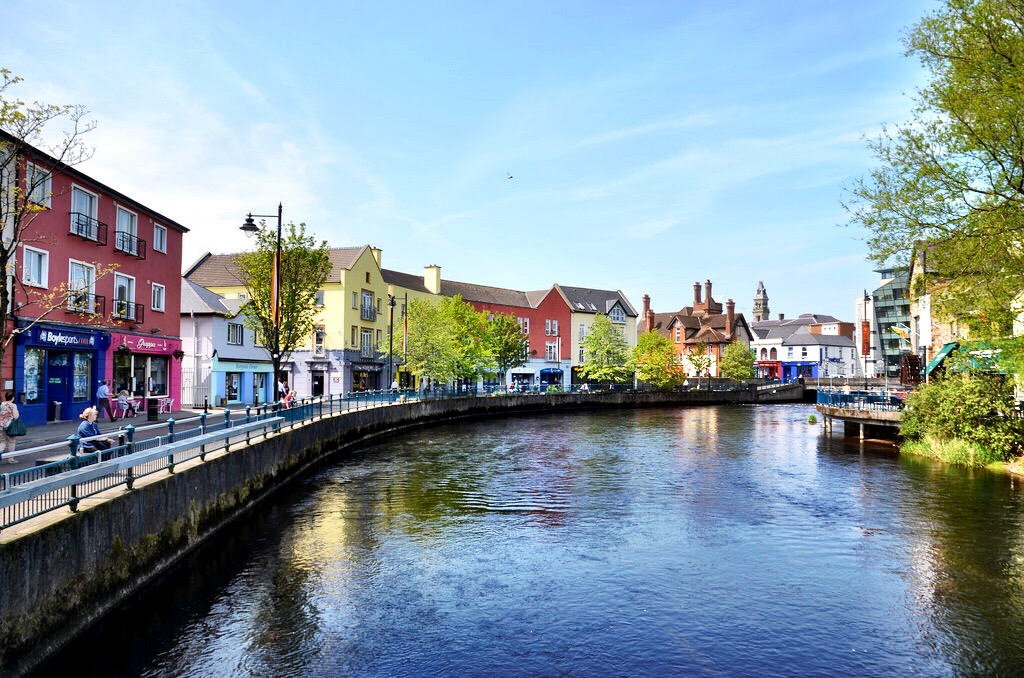
Next and last SARURE meeting in Sligo (Ireland)
Next 7-8th September we celebrate the last SARURE meeting in Sligo (Ireland) with retail exchange of experiences, study visits and Action Plan implementation.
When in a rural depopulated area the last local shop closes, the territory dies. SARURE wants to find feasible solutions to made rural shops to survive.
People in depopulated and fragile areas need a place to stay together, it's key
Local Shops supply the population and are a social hub, contribute to the quality of local life, encourage the population to stay and are a prerequisite for the development of other diversification activities. Also, SMEs and micro SMEs` weight in terms of employment is very significant in demographically fragile rural areas.
However, even if retail shops are a basic service in sparsely populated areas, their existence is not inevitable. Small villages need shops to survive but small rural shops need also a minimum number of customers to survive.

When depopulation started to affect severely some European regions, different schemes to support rural retail appeared around the year 2000. It was the case of Rural Multiservice Shops in Aragon (Spain) but also for different attempts and formulas in many other European countries, many northern and western but not exclusively. Even if these initiatives have undoubtedly contributed to cope with the situation in the past decade, the decline of retail in rural regions of Europe continues today. Rural businesses face significant challenges in the marketplace leading to their unfeasibility and to dramatic consequences in terms of social and territorial cohesion.
SARURE partnership intends to exchange on the models essayed during the past decade but also on the possibilities that:
99% of the SMEs in the retail sector in partner rural areas are indeed micro SMEs especially vulnerable to crisis and with many barriers to innovation.
€1,532,202.00
SME competitiveness
The final aim of the Project is to improve the partner regions policies in force supporting retail SMEs towards survival, innovation and overall competitiveness. Given the fact that today European regions from the diverse latitudes face the issue, Interreg Europe is deemed an excellent area to exchange on successful experiences and policie.
The Aragon ERDF 2014-2020 OP is divided into 6 priority axes that offer a regional response to the objectives defined in the Europe 2020 Strategy.
Axis 3 promotes support to the creation and consolidation of SMEs as a major source of employment in the region. TO3 focuses on improving the competitiveness of small and medium-sized enterprises in Aragon, objective IP 3D being to support the capacity of SMEs to participate in growth and innovation processes.
The diagnostic analysis for the IP contains diverse shortcomings in the Aragonese scenario:
SARURE is linked to axis 3 of the ROP; we hope to improve the development of the programme in this axis, providing further support to retail SMEs at a rural level, as the programme, even if mentions the lack of modernisation of commercial SMEs in Aragon, does not pay specific attention to rural SMEs, which are because of rural– with the peculiarities that this entails in a territory such as Aragon – the most affected by the lack of competitiveness.
Rural Retail SMEs are key players to achieve territorial cohesion in a territory with severe demographical imbalances.
The Programme aims to boost economic development and create job opportunities in West Macedonia while achieving Europe 2020 targets for smart, sustainable and inclusive growth. The OP support will contribute, among other development priorities, to "Enhancing competitiveness of SMEs".
In this regard SARURE will concern specifically the priority axis 3 addressing improvement of SMEs’ competitiveness. Thematic objective 03 concerns improvement of SMEs competitiveness including agricultural sector, fishery and aquaculture, all sectors being include indeed, those three being explicitly mentioned as they are usually financed through national operational programmes, having been in the past excluded from Regional Operational Programmes. However, every sector SMEs are object of the ROP in this period.
More specifically, sub-objective 3a addresses the promotion of entrepreneurship, especially with facilitation of economic exploitation of new ideas and support of new businesses, with measures such as business incubators among others; also the need for strengthening liquidity and access of new SMEs to financing, aiming at overall increase of SMEs competitiveness.
The policy improvement should ideally address rural retail SMEs specifically or target calls to this sector given the criticality of the sector in the region.
The OP will contribute to Finland reaching the key EU and national development priorities along with the "Europe2020" objectives.
There is just 1 programme for Finland, Regional Council of South Karelia being IB.
Priority axes of the OP are the following: Priority 1 "Competitiveness of SMEs (ERDF)"; Priority 2 "Producing and using the latest information and knowledge (ERDF)"; Priority 3 "Employment and labour mobility (ESF)"; Priority 4 "Education, skills and lifelong learning (ESF)"; and Priority 5 "Social inclusion and combating poverty (ESF)".
Priority Axis concerned by SARURE is Priority Axis 1 "Competitiveness of SMEs". It receives about the 20% of the total OP allocations. The investments aim to diversify business structures and increase the number of growing, innovative and internationally expanding companies. In order to reach these objectives, measures will target the start-up of new companies and the development of new business operations.
OP aims to support 5660 SMEs in developing new business opportunities based on regional strengths and create 12700 new jobs.
Even if the programme does not target specifically retail SMEs it is a suitable frame to develop the support to this type of SMEs, facing in such a way a necessity in rural Finland while being in line with the goal of the axis, which is SMEs Competitiveness.
Every Municipality has a Service Plan, which is a strategic document for services within the municipal area. The Service Plan regulates the services offered in the Municipality, setting up the guidelines for them. Different areas are covered, support to SMEs being one.
Söderhamn Municipality comprises 11 localities, some remote rural areas. Its Service Plan addresses the 11. The Service Plan for the Municipality of Söderhamn defines the local rules and contributions to the enterprise sector in the municipality, including retail. The Plan is the basis for applying for grants to the County Administrative Board indeed. Even if the Plan concerns the whole territory under its competence, it prioritises providing local services in rural areas, allowing for example retail SMEs offering more service than just retail.
The Service Plan defines different geographical areas to frame and target the applications for grants annually. Rural SMEs can consequently apply to Municipality for these grants. However, there is still a tremendous need for the Service Plan for Municipality of Söderhamn being improved in order to strengthen the support to rural entrepreneurship, ensuring basic service for all in Söderhamn rural areas, as determined in the regional development business and innovation plan. This includes strengthened attention to rural retail.
The business department of Municipality has collected the matters needing urgent attention, the improvement of the Service Plan stated.
The Integrated Rural Development Plan Burgenlandkreis (ILEK BLK) describes the main strategy for rural development in the municipal district Burgenlandkreis. The ILEK BLK has been developed in 2006 and was updated in 2010 after administrative reform.
It was developed in a bottom up process under the coordination of the Municipal District Burgenlandkreis, with the involvement of relevant stakeholders, networks, associations and citizens. The ILEK BLK has four priority areas: 1. Tourism; 2. Handicraft, Business and Services; 3. Public Services and Demographic Development and 4. Agriculture, Environment and Mining.
Within Area 2 of the policy instrument the promotion of businesses- retail SMEs included- is approached; Within Area 3 the ILEK BLK defines the objective to improve attractiveness of rural areas to keep people (especially young) in the area, creating a frame where interventions ensuring the existence of retail services for the population can fit.
Due to low birth rate, high death rates and negative migration balance the Burgenlandkreis will lose more inhabitants in the next years. Insufficient retail infrastructure is a big problem which worsens the situation. Therefore, the Burgenlandkreis wants to promote innovative and flexible solutions and the Integrated Rural Development Plan Burgenlandkreis (ILEK BLK) could frame them.
County Sligo Local Economic and Community Plan (LECP) 2016-2021 outlines measures to assist and sustain investment into the county and to facilitate job creation by creating a vibrant environment for entrepreneurship to flourish.
Goal 1 promotes developing Sligo as the economic driver of the Northwest and as an attractive location for investment, tourism, entrepreneurship and employment. The Plan, through different objectives, becomes a suitable frame to develop actions learnt in SARURE and mainstream the knowledge gained:
- Objective 1.4. Support job creation and Sustainable Economic Development in Communities throughout County Sligo
- Action 1.4.2. Support rural entrepreneurs and businesses to develop innovative products and activities in sectors of potential such as artisan and agrofood, creative industries, marine and renewable energy, etc.
- Ob 1.7. Support and develop Sligo´s important micro-enterprise and SME sectors including the expansion of existing and the start-up of new businesses.
- Ob 1.8. Develop sustainable, area-based development initiatives.
- Action 1.8.1. Develop Rural Economic Development Zones (REDZ) in key rural towns, starting with Tubbercury area as a pilot.
One of the indicators set up for the plan is "reduction in commercial vacancy rates by 30%". However it is remarkable the fact that even if the issue of commercial vacancy is highlighted, the plan lacks specific targeted measures addressing rural retailers and retail entrepreneurs.
The objective of the ROP of Warmińsko-Mazurskie Voivodship 2014-2020 is to increase the competitiveness of the region, as well as to improve the quality of life in the Warminsko-Mazurskie region, by strengthening the region's key assets and decreasing the barriers to growth.
The priority of the ROP of Warmińsko-Mazurskie Voivodship 2014-2020 addressed by SARURE project is Priority Axis I “Smart economy of Warmia and Mazury” , specifically Objective 3 "Strengthening the competitiveness of SMEs" included within it.
Priority Axis I "Smart Economy of Warmia and Mazury" comprises two thematic objectives: objective 1 "strengthening research, technological development and innovation" and objective 3 "strengthening the competitiveness of SMEs".
The decision on the dual-priority axis is dictated because of its interest for potential beneficiaries SMEs themselves, promoting a close relationship between technological development and economic development.
However currently there are poor results out of the implementation of this priority. A very small number of the applications submitted by SMEs prosper due to complicated procedures and criteria. The participation of small businesses from the rural areas is very low indeed.

Next 7-8th September we celebrate the last SARURE meeting in Sligo (Ireland) with retail exchange of experiences, study visits and Action Plan implementation.

The Interreg Europe Secretariat is currently looking for one Policy Officer (10 months contract). The position is based in Lille, France.
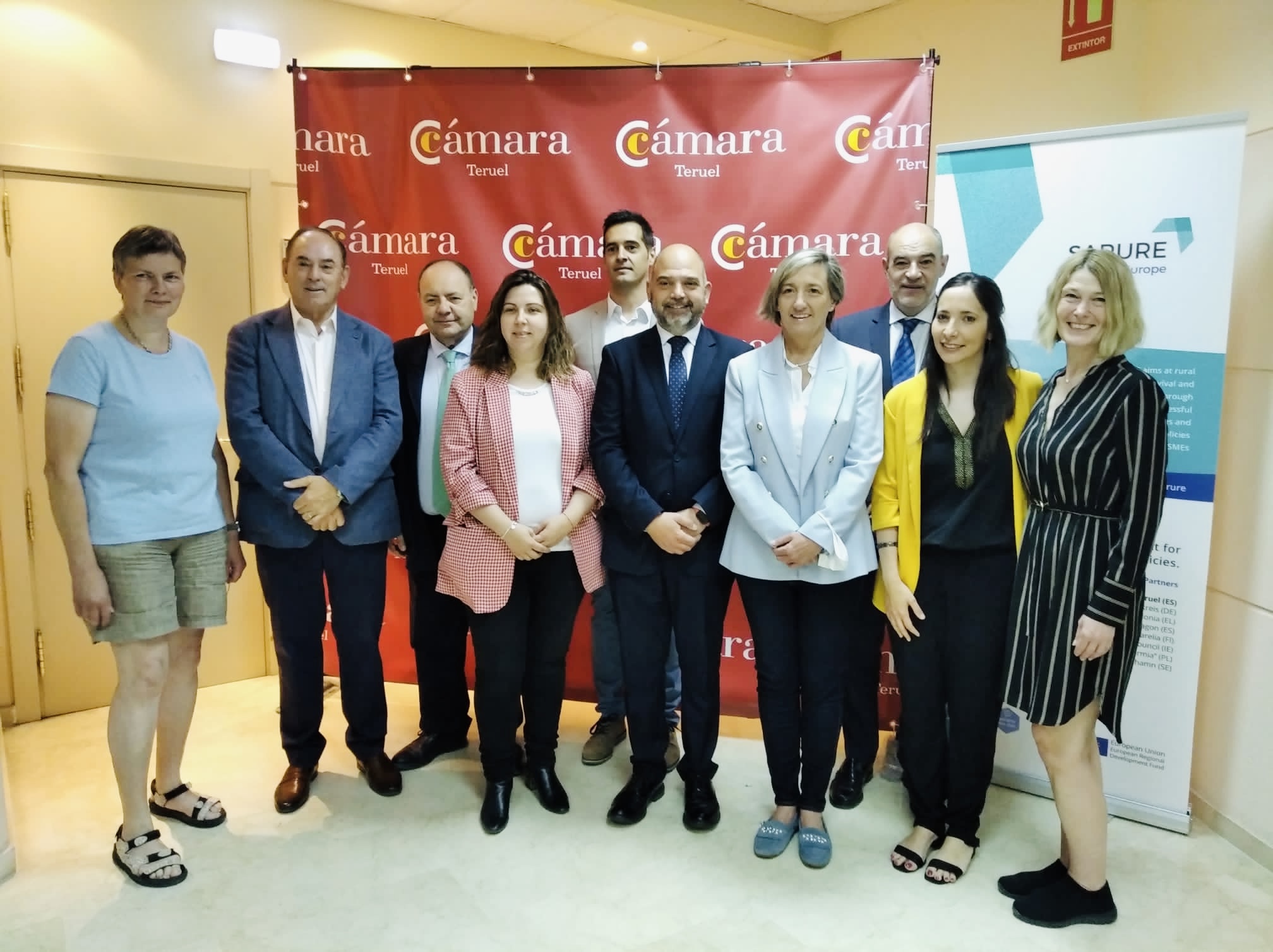
SARURE Final Conference took place in Teruel (Spain) on 19th May 2022.
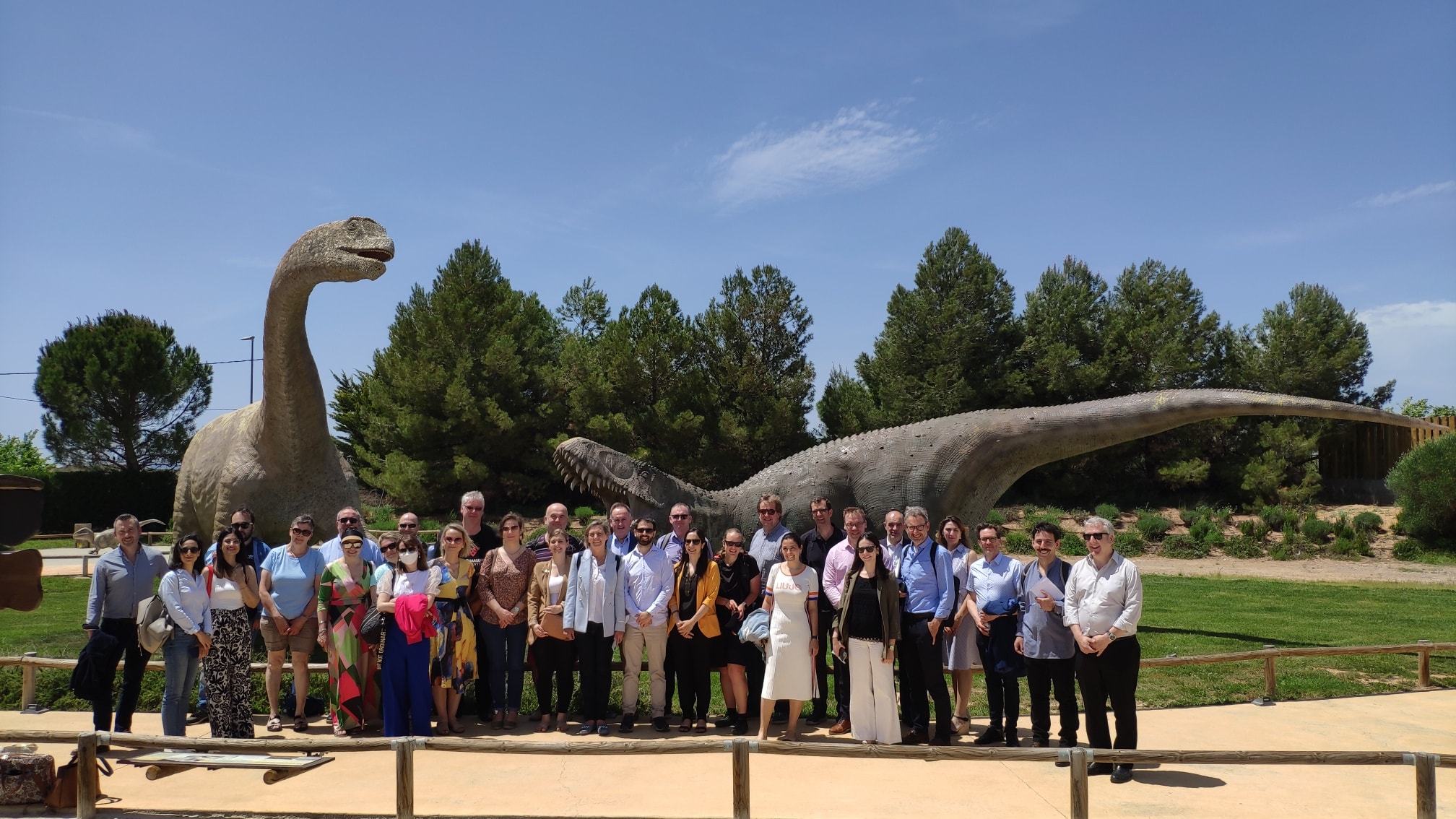
Exchange of experiences final meeting took place in Teruel (Spain) on 18th May 2022.
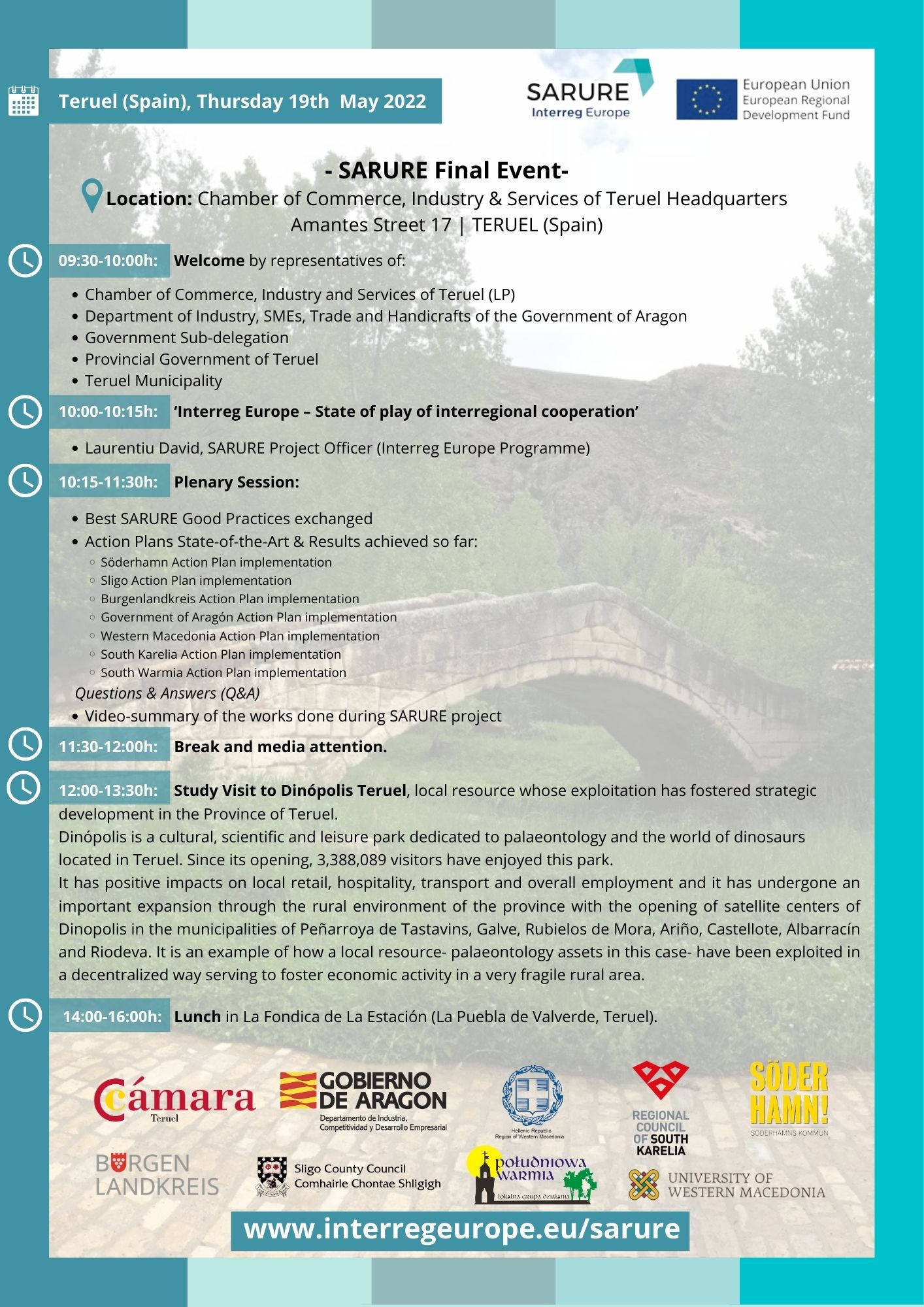
The 18th May 2022 we celebrate in Teruel an Exchange of experiences meeting and the 19th May 2022 the SARURE Final Event after five years of hard work together.
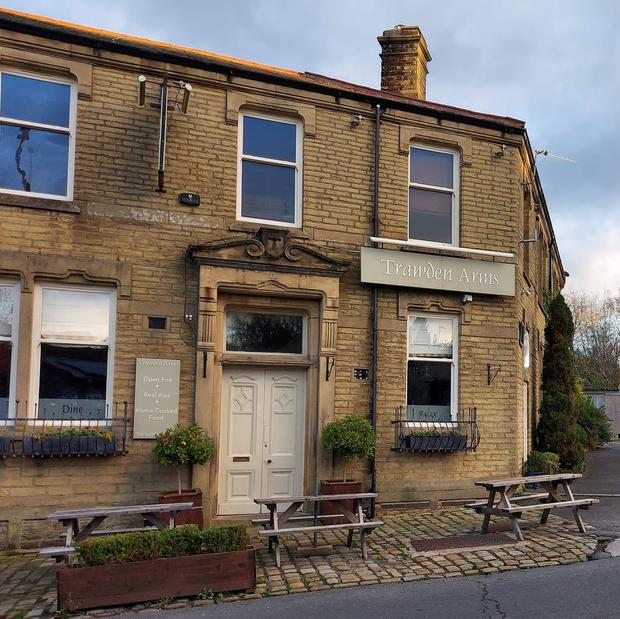
Neighbors of a town buy the bar, the post office, the library and the store so that they do not disappear.

An online discussion on the topic of "raising the competitiveness of rural SMEs in the COVID-19 context".
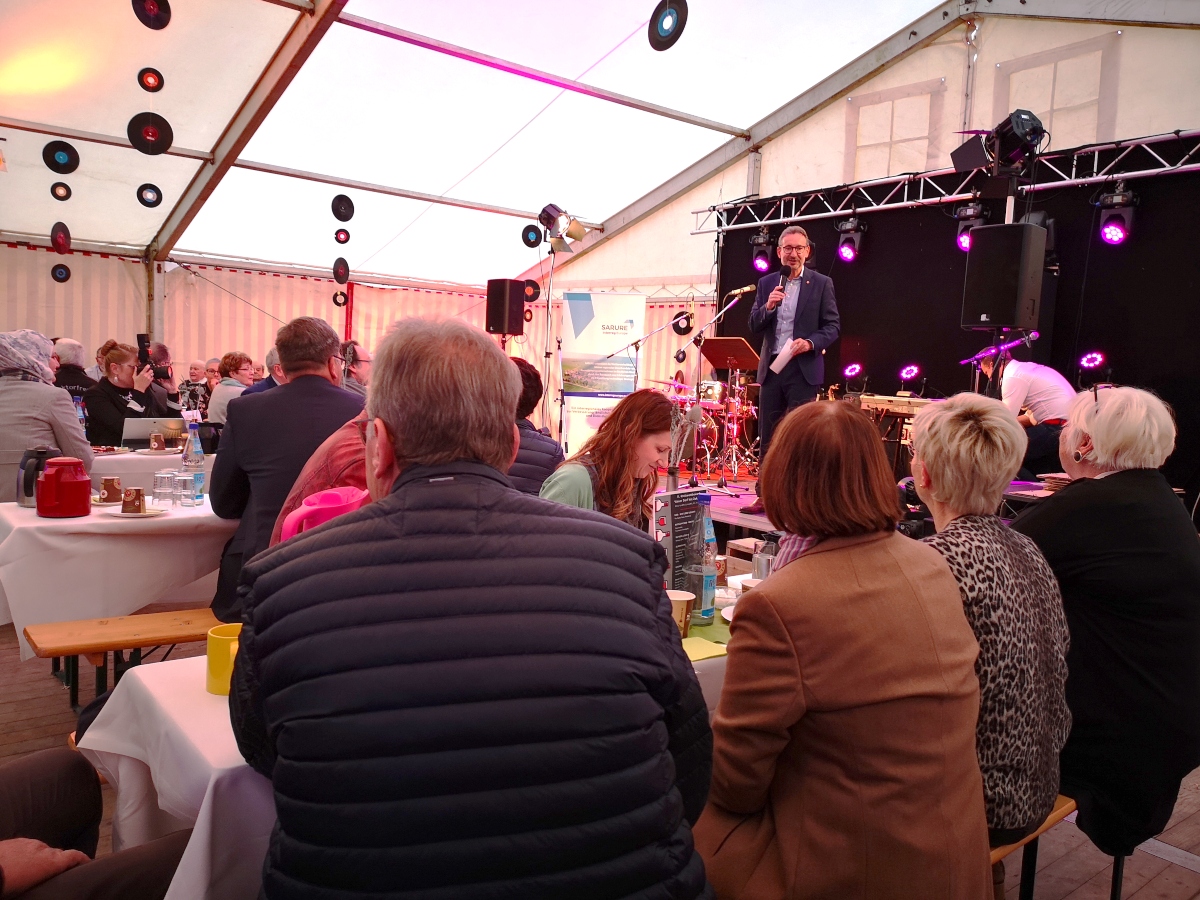
The Burgenlandkreis (Germany) organised the regional competition "Our village has a future!" in October 2021

During the 2021-2027 programming period, we will continue to support interregional cooperation among regions from all across Europe.
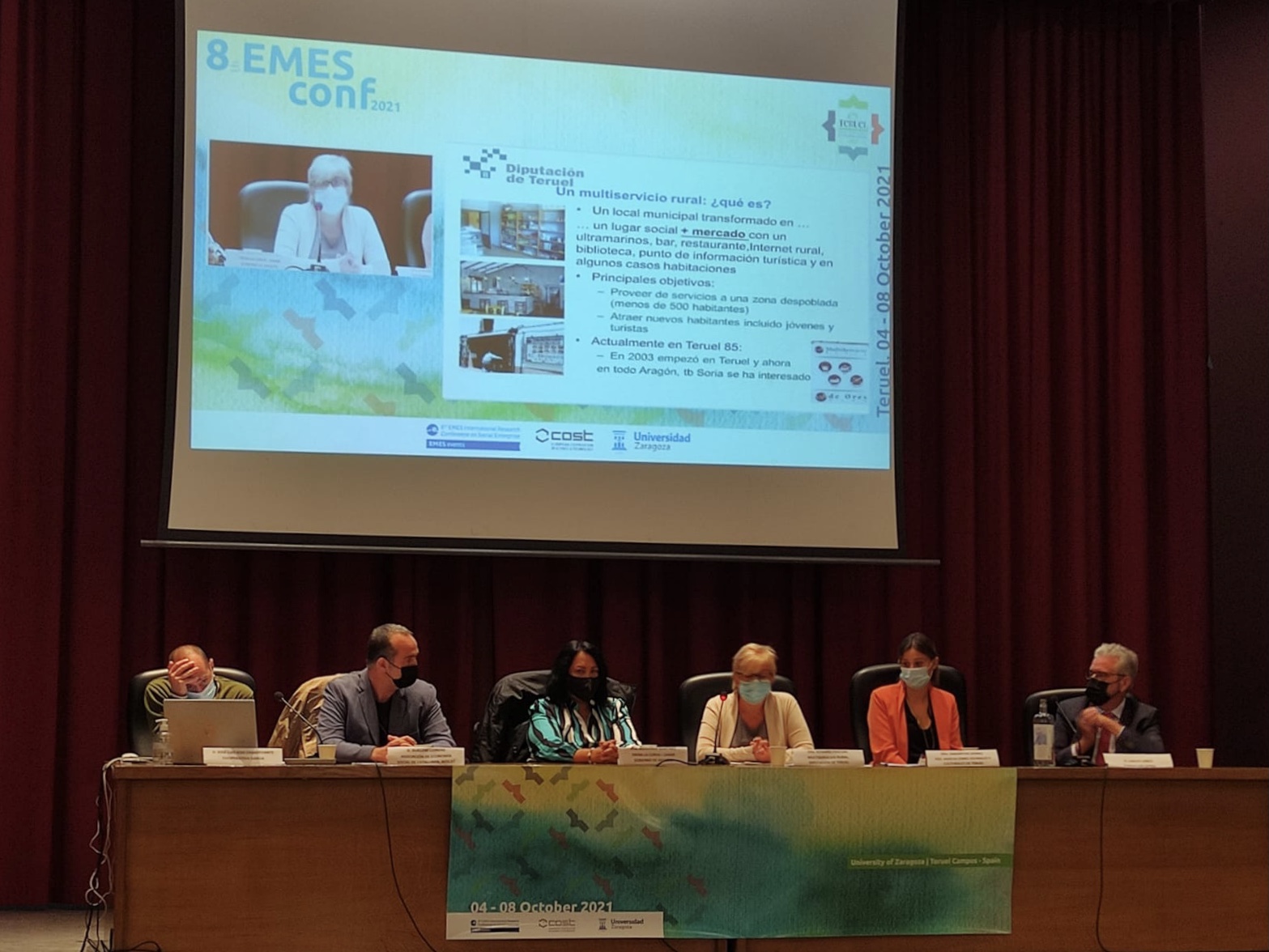
A monographic seminar addresses various experiences developed in the territory